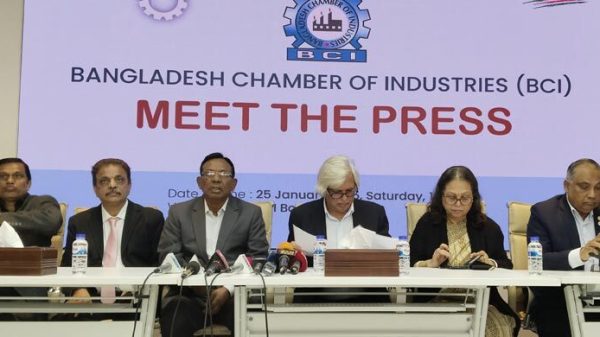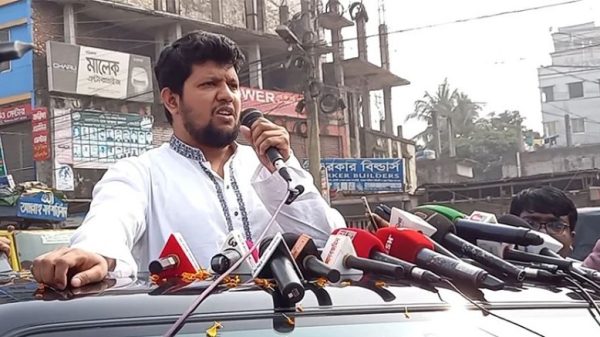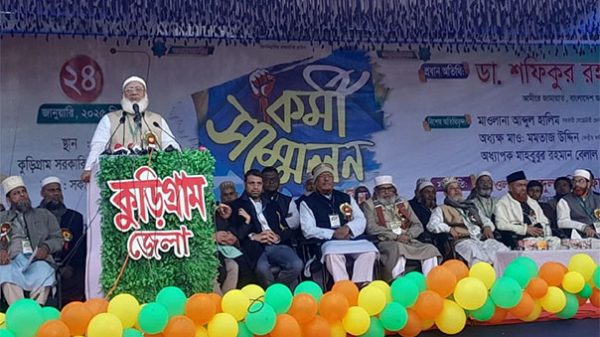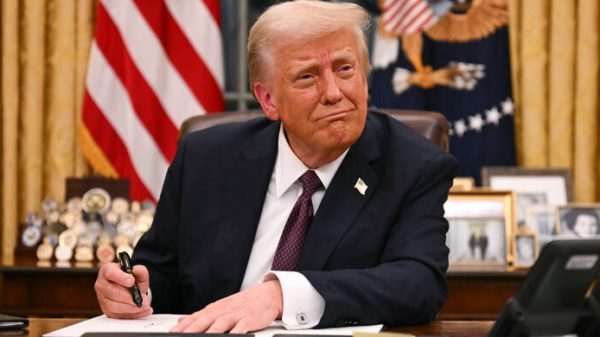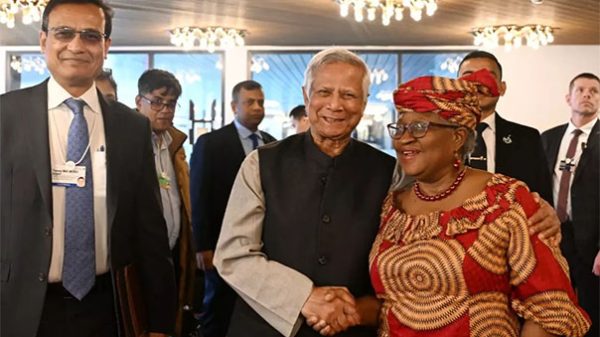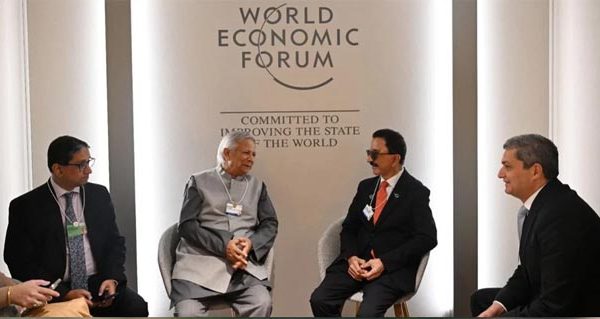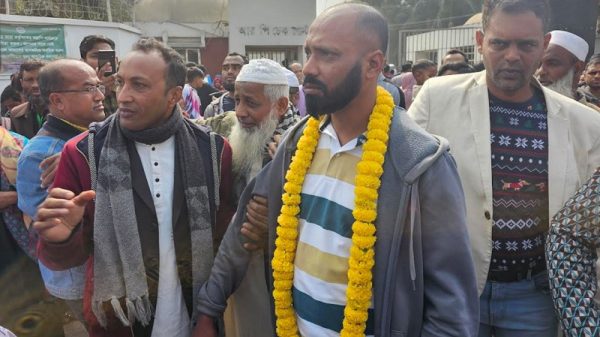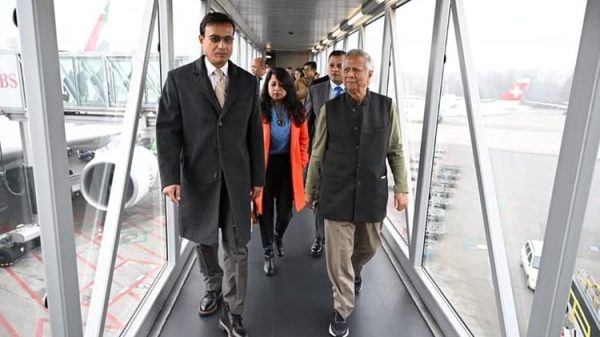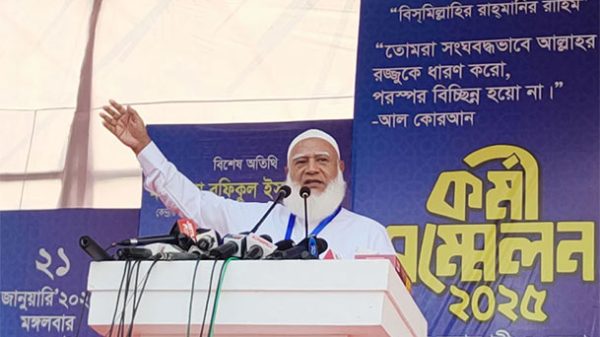Strategic considerations, geopolitical factors, genuine willingness keys to take Dhaka-Washington ties to next stage

- Update Time : Friday, 1 March, 2024, 05:19 pm
- 84 Time View
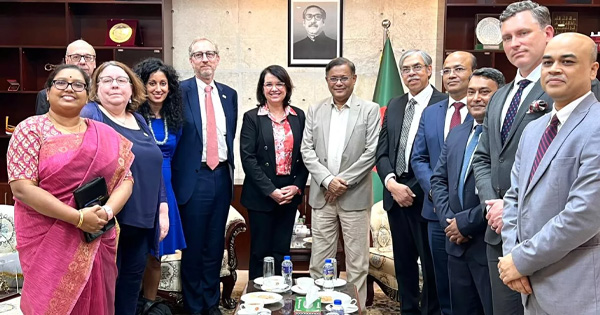
Online Desk: Strategic considerations, geopolitical factors and a genuine willingness to broaden ties in new areas will drive forward the Bangladesh-US relations to the next level leaving behind pre-election political differences between the two countries, experts opine viewing post-polls relations.
“Both countries have long and old ties in every aspect of statecraft and bilateral relations. The new chapter denotes that these two countries would deepen their engagement beyond the much-debated political differences,” Prof Shahab Enam Khan of Jahangirnagar University’s Department of International Relations told UNB this week.
A senior US government delegation visited Bangladesh last week with an agenda that included strengthening diplomatic ties and advancing shared interests in the Indo-Pacific region.
The delegation comprised Eileen Laubacher, Special Assistant to the President and Senior Director for South Asia, US National Security Council (NSC); Michael Schiffer, USAID Assistant Administrator, Bureau for Asia; and Afreen Akhter, US Department of State Deputy Assistant Secretary for South and Central Asia.
Their discussions also focused on climate change, trade, the Rohingya refugee crisis, and labor rights. The delegation met with senior officials, business executives, civil society organisations, and top opposition leaders.
Prof Shahab, who is also executive director and CEO at Bangladesh Center for Indo-Pacific Affairs, assumes the issues of Bangladesh’s national security and the Indo-Pacific agenda coincide with the US ones.
Hence, he thinks, the bilateral relations will get new momentum in defense, security, non-traditional security, and human security issues.
“Myanmar, too, is a wake-up call here. This further gives me a sense that the US would not see Bangladesh through any third-country prism,” said the international affairs expert.
Instead, he thinks, both countries may synchronise their mutual interests in the coming days. “Bangladesh, after all, has been the most dependable country for the superpowers as it comes with no fractured ties with the regional neighbours or any hyped-up political or security narratives.”
Prof Shahab said these two factors make Bangladesh a regional security guarantor needed to keep the Indo-Pacific region stable.
A New Chapter and Priorities
Asked about the priority areas in opening a new chapter in their relations with Bangladesh, US Embassy spokesperson Haynes Mahoney said Bangladesh is an Indo-Pacific partner and the United States is Bangladesh’s largest source of foreign direct investment.
“We are committed to working together to ensure the Indo-Pacific region remains free, open, peaceful, and secure. We also engage with Bangladesh on broader sets of priorities,” he told UNB.
“As President Biden has stated, we will look at ways to build on our long-standing partnership to improve economic growth, mitigate climate change, and to invest in people so they have opportunities to lead healthier and more prosperous lives,” Haynes added.
The US is pleased to see Bangladesh’s Indo-Pacific outlook, which he thinks “really mirrors” what they are trying to do in terms of economic investment, working with Bangladesh on climate change, and building out security and defense cooperation between the two countries.
Bangladesh is, of course, one of the largest UN Peacekeeping contributors, and we are very pleased to support that effort, Haynes said.
Highlighting economic opportunities, he said leveraging their investments in development through the private sector and engaging youth are areas that they are increasingly focused on.
“We are bringing business leaders and youth together to identify ways to equip young people with more marketable job-skills – creating a more talented workforce with the skills needed to drive companies towards greater success and help Bangladesh be more competitive in the global marketplace,” he said.
The US Embassy spokesperson said they continue to identify ways to strengthen the economic and trade ties between the two countries, while building on our work together to accelerate socio-economic development so that people in all corners of the country have equitable opportunities to live healthier and more prosperous lives.
“We are looking for ways in which we can collaborate with Bangladesh to modernize its military and be able to invest in maritime domain awareness to be able to understand what is on your coastal borders, what is coming in by air, land, and sea,” he said.
Issues around GSOMIA and ACSA
Asked about the progress regarding the two proposed agreements – General Security of Military Information Agreement (GSOMIA) and the Acquisition Cross-Servicing Agreement (ACSA), Haynes said GSOMIA is being considered between the US and Bangladesh armed forces as the two sides continue to explore opportunities for “more substantive and deeper” engagement.
The agreement is effectively a commitment that each side will effectively secure any information or sensitive materials received from the other, he said.
On the other hand, he said, ACSA facilitate the exchange of logistical support between partner militaries and enhance the opportunities for meaningful engagement.
Although there are no discussions at present between the US and Bangladesh about pursuing an ACSA, this could change in the future should the two sides determine it offers sufficient benefit, Haynes said.
Myanmar Situation and Its Impacts
“Obviously, we are very concerned, and we are following the developments in Burma [Myanmar] closely. The ongoing clashes in Burma [Myanmar] are deeply troubling. This is a significant concern not only for the region but also for the international community,” said the spokesperson.
He said the ongoing crisis in Myanmar is a pressing issue, and the United States has contributed more than two billion dollars in humanitarian assistance to this crisis, including approximately $500 million in Myanmar.
“It is essential to address the root causes of the crisis, promote stability, and work towards finding a sustainable and humane resolution,” he said.
They emphasised the need for diplomatic efforts and international cooperation to mitigate the challenges posed by the situation in Myanmar, aiming for a “comprehensive and inclusive” approach to ensure the well-being of the affected populations and regional stability.
“We also recognize the need to continue support for civilians displaced by the conflict in Burma, including both internally displaced people in Burma and Rohingya refugees residing in Bangladesh,” said the spokesperson.
Earlier this year, the United States provided an additional $87 million to continue providing food and nutrition assistance to Rohingya refugees in Bangladesh, which helped raise the monthly food rations for refugees to $10 per person per month.
“That was an important step to make sure they are getting enough food and nutrition to stay healthy. We also continue to provide support to Bangladeshi host communities through a range of multisectoral interventions, including job-skills and business literacy training to help people improve their livelihoods,” said the spokesperson.
A Positive Shift
South Asia Institute Director at the Wilson Center and writer of Foreign Policy’s weekly South Asia Brief Michael Kugelman has said US-Bangladesh relations have taken a more positive turn after a Bangladesh election that the US described as not free or fair.
He explained why, and also argued that this shift is not actually as sharp as it seems and noted that the visit came amid an apparent shift in bilateral relations, especially in terms of tone and messaging.
In the months ahead of Bangladesh’s Jan. 7 elections, the United States took strong steps to promote human rights and democracy, including through sanctions, visa restrictions, and public criticism.
Though that US State Department characterised the vote as not free or fair, US President Joe Biden sent a letter to Bangladeshi Prime Minister Sheikh Hasina that welcomed the “next chapter” in the US-Bangladesh relationship; it did not mention rights or democracy.
During the U.S. delegation’s visit this week, Bangladeshi officials, including Foreign Minister Hasan Mahmud, underscored the fresh start theme.
Salman F Rahman, an advisor to PM Hasina, said the “election is now a thing of the past.” Messaging from both sides was warm and effusive, with plenty of references to the partnership’s strength.
What accounts for the turnaround? Michael Kugelman said one possibility is Washington’s desire to distance itself from the highly charged political environment in Dhaka.
“The more U.S. officials publicly opine about human rights and democracy in Bangladesh, the more they risk getting dragged into it,” he wrote in Foreign Policy’s South Asia Brief.
He said strategic considerations are also likely at play and the previous US approach effectively gave Beijing and Moscow an advantage in Dhaka and rankled New Delhi.
“Geopolitical factors also play a role in the new US approach. The conflict in neighboring Myanmar is intensifying, and Bangladesh hosts hundreds of thousands of Rohingya refugees but seeks to repatriate them,” Kugelman said.
Washington wants to ensure that it has sufficient diplomatic space to engage with Dhaka on these sensitive issues.
Additionally, Kugelman said with US foreign-policy attention increasingly focused on instability in the Middle East, the United States wants to reduce diplomatic headaches elsewhere.
“The relationship’s tone and messaging are emphasizing positivity and potential, not public pressure. Ultimately, this reflects that, for now, the United States has concluded that smooth relations with Bangladesh are a strategic imperative,” he said.

